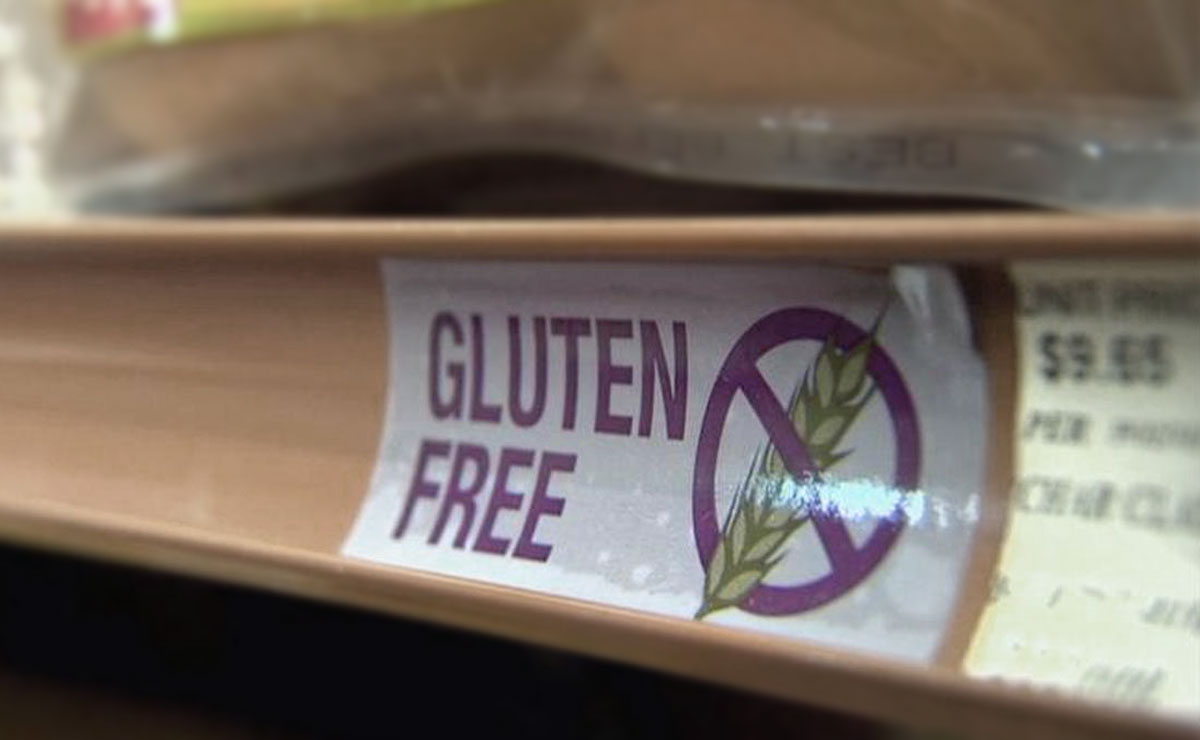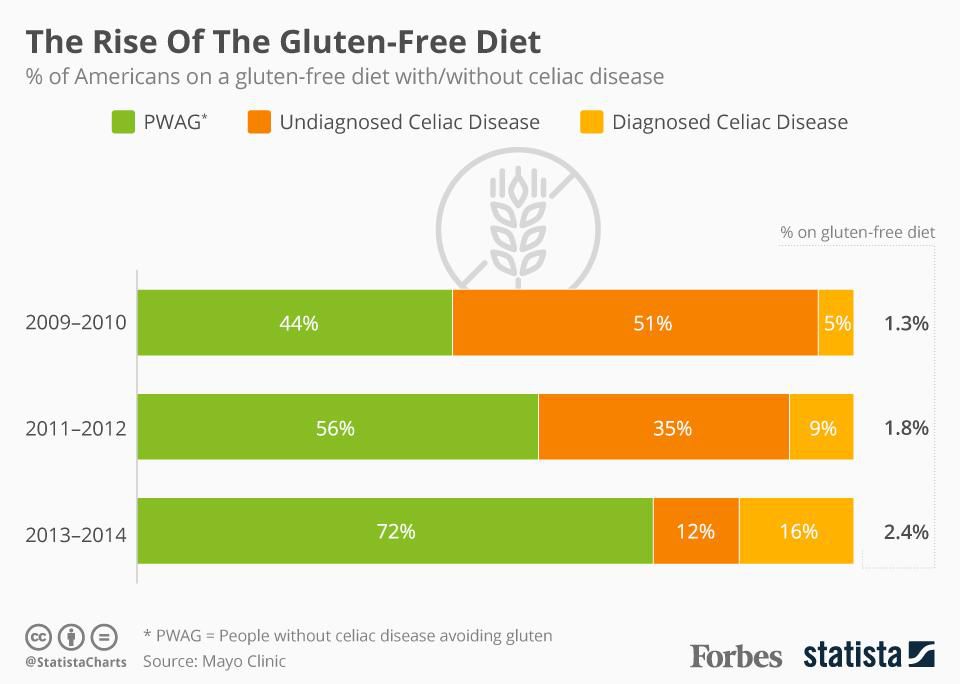
The gluten-free trend has made its way into the tea world. But what is gluten, is all tea gluten-free, and why is the gluten-free designation important? Gluten is a protein found in wheat, rye, and barley. Having gluten sensitivity or intolerance means that someone has a problem digesting this protein. The symptoms can include bloating, diarrhea, abdominal pain, skin rashes, tiredness, or even muscle cramping and leg numbness.
This condition is also known as NCGS, non-celiac gluten sensitivity, and remains poorly defined. Research shows there is still debate whether it is caused by gluten or other components of wheat. Although its symptoms may be similar to those caused by celiac disease, it is important to note that celiac disease is not an allergy or food intolerance, it is an autoimmune disease that damages the small intestine. People suffering from celiac disease should avoid gluten completely in order to avoid further damage.

Gluten is found mainly in foods, but it may also be in other products such as medicines, vitamins, supplements, and even tea. Answering whether all tea is gluten-free can be tricky. Traditional plain tea -- green or black -- is made from the leaves of the Camellia Sinensis plant, which is not related to wheat, barley, or rye; however, not all teas are made from this plant (herbal teas are one example), and some teas can contain barley malt as a sweetener or other grain-based flavors. Hence, the importance of looking for a gluten-free tea label.
When it comes to green tea matcha, we could assume that matcha powder is naturally gluten-free (and we would be right in most cases since it comes 100% from the Camellia Sinensis plant). However, tea may be contaminated with gluten during the manufacturing process. At Keicha Tea World, our GFCO label promises that our gluten-free matcha powder meets the highest quality of standards and has not been subjected to any gluten cross-contamination.
Gluten-free certified matcha powder is no joke! As part of the GFCO requirements, our gluten-free bulk tea undergoes an annual inspection and is tested on a regular basis by the GFCO for review. This program ensures our tea is gluten-free by assessing manufacturing risk, plant audits, equipment testing, and product testing both in the plant and at the point of consumer purchase.

Although gluten-free certification is only 10 years old in the US, the gluten-free market is one of the fastest growing industries. According to Forbes, 3.1 million people across the United States have a gluten-free diet. 72% of them are classified as "PWAGs" -- people without celiac disease, avoiding gluten. This number has tripled since 2009. It comes as no surprise then that making sure our tea is gluten-free certified is important!
Certified gluten-free matcha powder is not only a matter of business, but consumers are also looking for products that meet strict safety standards. A recent survey shows that GFCO brings confidence, trust, and loyalty. From a survey conducted over 5,000 consumers, “over 80% said they buy products marked gluten-free (GF) over similar products. At the same time, 65% said they have little trust in manufacturing. 97 % of those polled are brand loyal.”
Keicha Tea World proudly offers high-quality certified gluten-free matcha powder. If you are interested in knowing all about how our tea is marked gluten-free, the GFCO is the place to go. It is the largest certification organization in North America, and its focus is on helping manufacturers win consumer confidence and loyalty.
The general process is based on four basic steps: 1) completing an application; 2) receiving a quote for audit expenses and certification, which is based on the risk assessment of our gluten-free matcha powder ingredients, the manufacturing plant, and other factors affecting production; 3) booking the initial inspection; and 4) preparing the contract and signing it.
Once the process is finished, annual inspections and regular testing take place to make sure our tea is always gluten-free. The whole process can take between 6 to 18 weeks.
In addition to gluten-free tea and ceremonial grade matcha, Keicha Matcha is also proud to hold several other quality control and safety certifications that guarantee that high quality of our products. From gluten-free matcha certifications to the industry-leading FSSC 22000 certificate, Keicha Tea World works hard to make sure you receive the very best product every time.